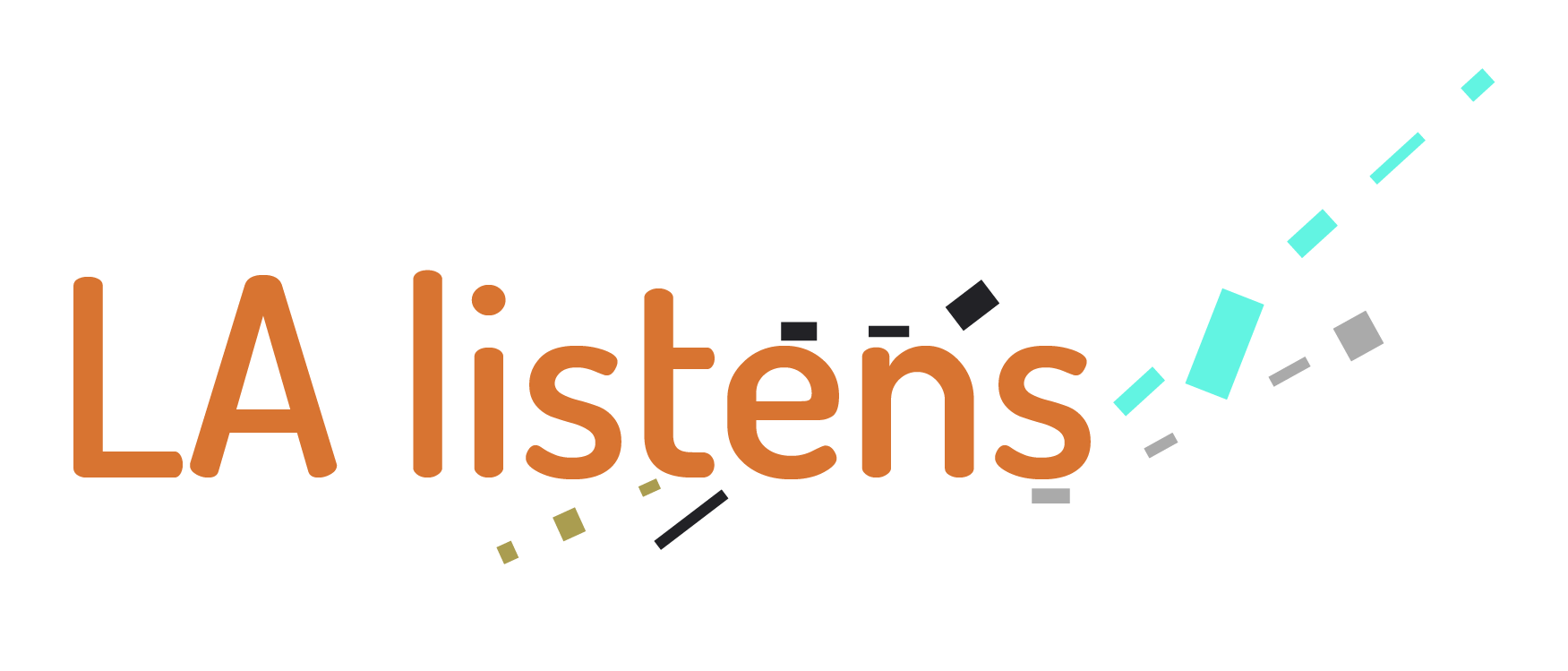LA Listens is a collaboration between a sound ethnographer, acoustic ecologist, and a composer/music technologist. Our project takes an analytic-praxis approach to listen to the interrelationships between the sensory, social, and ecological aspects of streets in Los Angeles. We engage with the experiential and data dimensions of place-based sensory traits to analyze the permeable layers of LA’s public acoustic territory (LaBelle 2010).
A methodological intervention, this project is driven by technological affordances and research modalities from sound-related disciplines across the humanities, sciences, and the arts. We capture neighborhood-level field recordings based on the city government’s public data and urban planning programming. Closely listening to the field recordings, we scrutinize the meanings of “vibrancy” and question the role of motorized vehicles, pedestrians, conversations, street vendors in the multivalent soundscape of LA’s neighborhoods. Additionally, using computational methods including Music Information Retrieval (MIR) techniques and sonographic data analysis, we uncover underlying patterns in terms of sound events and periodicity in recordings. Integrating our data-driven and qualitative findings, we explore broad inquiries such as: What are the sonic characteristics of a dangerous intersection? What is the sonic identity of street-side vibrancy as defined various stakeholders including residents, urban planners, and city’s officials? What is the sonic relationship between sanctioned and unsanctioned social activities? How do sounds (re)mediate neighborhood cultural identities?
Our research goals extend into the civic and creative realms. We intend to offer sensory data as resources for city planners and organizers to draw upon when making policy decisions. We also want to spark a creative dialogue, providing artists with access to our data to co-produce reflexive interpretations of the city’s sounds. Fusing these two goals, our research will eventually lead to the development of a noise filtering algorithm that removes traffic sounds and an augmented reality app that alters soundscapes in real time.
Work Cited
LaBelle, Brandon. 2010. Acoustic Territories: Sound Culture and Everyday Life. The Continuum International Publishing Group: New York.


